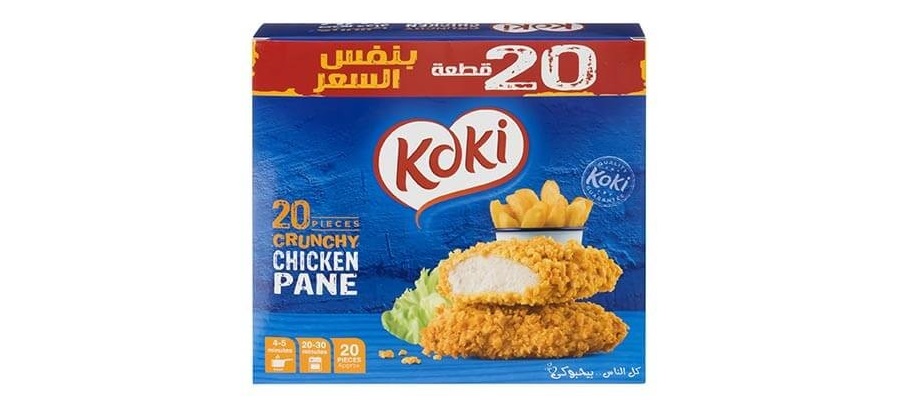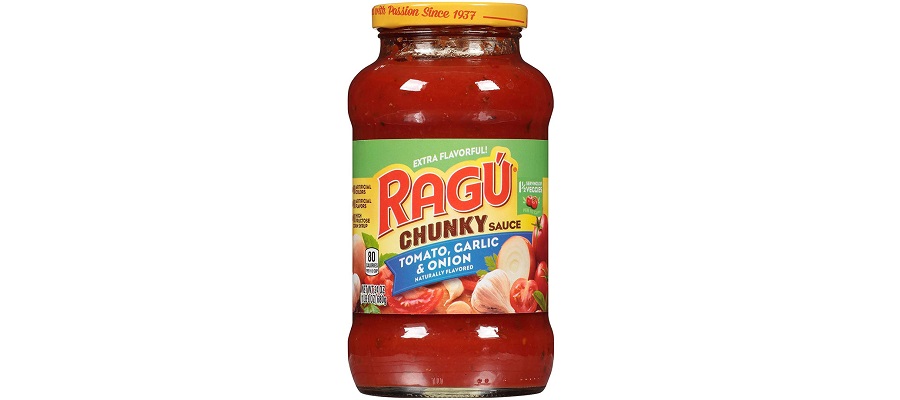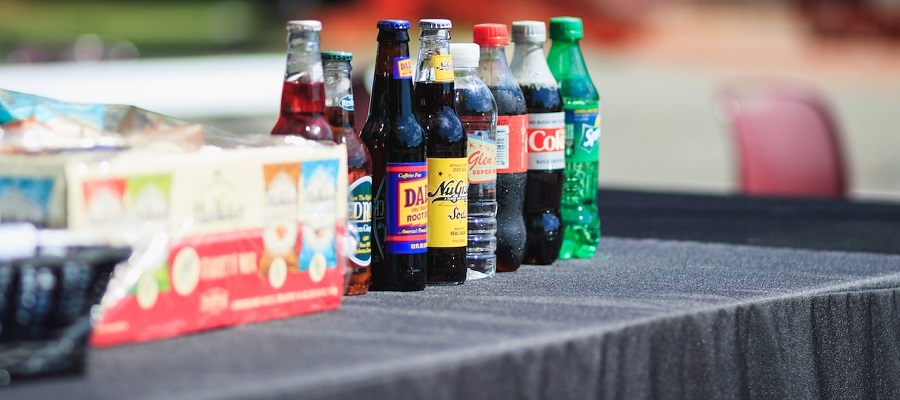Koki is an Egyptian company that is based in Cairo and is involved in the production and distribution of frozen chicken products. The company was founded in 1994 and has become one of the leading producers of frozen chicken products in Egypt.
According to the company's website, Koki produces a wide range of frozen chicken products, including whole chickens, chicken parts, and value-added chicken products such as chicken nuggets, chicken fingers, and chicken burgers. The company claims to use high-quality, locally sourced chicken in the production of its products, and to adhere to strict food safety and quality control standards.
In addition to its production facilities in Egypt, Koki also has a number of distribution centers and sales offices around the country, and it exports its products to a number of countries in the Middle East and North Africa region.
Overall, Koki is an Egyptian company that is involved in the production and distribution of frozen chicken products. The company produces a wide range of frozen chicken products, including whole chickens, chicken parts, and value-added chicken products, and claims to use high-quality, locally sourced chicken in the production of its products.
What are the company's products?
According to the company's website, Koki is an Egyptian company that produces a wide range of frozen chicken products, including whole chickens, chicken parts, and value-added chicken products such as chicken nuggets, chicken fingers, and chicken burgers.
Some of the specific products that are offered by Koki include:
-
Whole chickens: These are whole, frozen chickens that are suitable for roasting or grilling.
-
Chicken parts: These are individual chicken parts, such as breasts, wings, thighs, and drumsticks, that are suitable for grilling, frying, or baking.
-
Chicken nuggets: These are bite-sized pieces of breaded and fried chicken that are suitable for snacking or as part of a meal.
-
Chicken fingers: These are long, thin strips of breaded and fried chicken that are suitable for snacking or as part of a meal.
-
Chicken burgers: These are patties of minced chicken that are suitable for grilling or frying and can be used in sandwiches or as part of a meal.
Overall, Koki is an Egyptian company that produces a wide range of frozen chicken products, including whole chickens, chicken parts, and value-added chicken products such as chicken nuggets, chicken fingers, and chicken burgers.
What is the difference between frozen chicken and fresh chicken?
Frozen chicken and fresh chicken are two different types of chicken that are produced and sold in different ways. Here are some of the main differences between the two:
-
Production and storage: Fresh chicken is produced and sold on a regular basis, and it is typically stored at a temperature of 4°C (39°F) or below until it is sold. Frozen chicken, on the other hand, is produced in larger quantities and then frozen and stored at a temperature of -18°C (0°F) or below until it is sold.
-
Shelf life: Fresh chicken has a relatively short shelf life and should be cooked or consumed within a few days of purchase. Frozen chicken, on the other hand, can be stored in the freezer for longer periods of time and can be defrosted and cooked as needed.
-
Nutrition: There is some debate about whether frozen chicken is as nutritious as fresh chicken, but it is generally considered to be nutritionally similar to fresh chicken. However, frozen chicken may be more convenient to use in some cases, as it is easier to store and does not need to be used as quickly as fresh chicken.
-
Taste and texture: Some people believe that fresh chicken has a better taste and texture than frozen chicken, while others do not notice a significant difference. The taste and texture of chicken can also be affected by other factors, such as how it is cooked and the quality of the chicken itself.
Overall, frozen chicken and fresh chicken are two different types of chicken that are produced and sold in different ways, and there are some differences in terms of production and storage, shelf life, nutrition, and taste and texture.
What is the secret of the delicious taste of frozen chicken?
There are a number of factors that can contribute to the taste of frozen chicken. Some of the key considerations include:
-
Quality of the chicken: The quality of the chicken used to produce frozen chicken can have a significant impact on its taste. Frozen chicken that is made using high-quality, fresh chicken is likely to have a better taste than frozen chicken made using lower-quality chicken.
-
Processing and cooking techniques: The way that frozen chicken is processed and cooked can also affect its taste. For example, breading and seasoning the chicken before freezing it can add flavor and make it more tasty when it is cooked.
-
Freezing and storage: The way that frozen chicken is frozen and stored can also affect its taste. Frozen chicken that is frozen quickly and stored at a consistent, low temperature is likely to retain its taste and texture better than frozen chicken that is not frozen or stored properly.
-
Preparation and cooking methods: The way that frozen chicken is prepared and cooked can also affect its taste. For example, frozen chicken that is cooked using a moist-heat cooking method, such as boiling or steaming, may have a better taste than frozen chicken that is cooked using a dry-heat cooking method, such as grilling or frying.
Overall, there are a number of factors that can contribute to the taste of frozen chicken, including the quality of the chicken, the processing and cooking techniques used, the freezing and storage methods, and the preparation and cooking methods.


